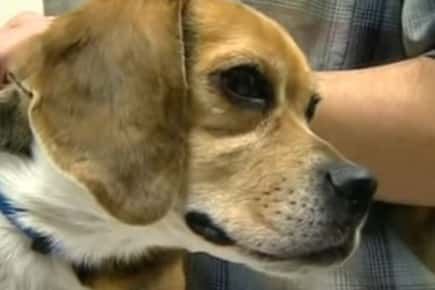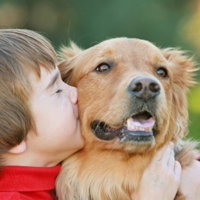Pets and Holidays: What to Know Before Feeding Your Pet Table Scraps
Do your pets spend mealtime under the dining room table, hoping for a few samples of your holiday feast? Unfortunately, eating some table scraps could cause health troubles for your cat or dog. Not sure what foods are safe for your pets? Check out our safe eating tips.

Don’t Let Your Pets Eat Raw Foods
Since animals eat raw meat in the wild, you might think it would be perfectly safe for your pet to eat uncooked foods. Unfortunately, raw eggs, poultry, beef and meat may contain salmonella or E. coli. Salmonella, E. coli and other germs may sicken or kill your furry friend. It’s a good idea to store raw foods in the refrigerator until you’re ready to use them.
Keep It Simple
The simpler the better when it comes to holiday foods, according to the American Kennel Club (AKC). The AKC notes that spices and other ingredients can cause digestive problems in pets. Although eating a small amount of plain turkey won’t bother your cat or dog, turkey skin and bones may. Fatty turkey skin could trigger pancreatitis, an illness that can be deadly, while the bones could injure or choke your pet. Unlike other types of bones, turkey bones tend to splinter into sharp points when your dog or cat bites into them.
Don’t Offer These Foods
Any food that contains spices, fats, or dairy products can cause upset stomachs, diarrhea, or more serious problems for pets. Many dogs and cats can’t digest lactose, a protein found in milk. Although your pet may eagerly lap up milk or ice cream, diarrhea, vomiting, bloating, and gas can occur a few hours later.
Other foods that shouldn’t be shared with pets, including gravy, nuts, candy (or other sugary treats), raisins, and grapes. Eating raisins and grapes or foods that contain them could cause kidney failure and death in pets, according to Tufts University Cummings School of Veterinary Medicine.
Keep any foods that contain onions, garlic or scallions away from pets too. Those foods may trigger hemolytic anemia, a serious condition that occurs when red blood cells die too soon. Hemolytic anemia can be fatal in dogs and cats.
Chocolate should also be kept out of reach of pets. Theobromine and caffeine, two ingredients in chocolate, can kill your dog or make it very sick. Although cats are less likely to gulp down a piece of dropped chocolate, they can also become sick if they happen to eat chocolate. Chocolate in any form, whether in candy or a cup of hot cocoa, can sicken your furry friends.
Other foods to avoid include gravy and yeast in dough or baked good. Keep candy or gum that contains the artificial sweetener xylitol out of reach. Xylitol is toxic to dogs and cats and can cause dangerously low blood sugar, liver damage and death.
Take Out the Trash
Your efforts to protect your pet shouldn’t stop when the meal is over. Curious pets can get their fill of forbidden holiday foods simply by knocking over the kitchen trash can. Trash may also contain other dangerous items, like turkey bones or string. String may wrap around your pet’s intestines if swallowed, which could require an trip to the veterinary office for surgery. Fortunately, you can prevent disaster by promptly taking out your kitchen trash.
Prepare a Special Meal Just for Pets
Your pets won’t feel left out when you give them their very own holiday meal prepared with safety in mind. Follow the ASPCA’s advice and offer pets a small amount of turkey, sweet potatoes, or pumpkin. Make sure that these foods haven’t been seasoned before you give them to your pets. If your pet isn’t a fan of holiday foods, offer a few treats or splurge on a can of premium pet food.
Holidays will be much more enjoyable for you and your pet when you keep these tips in mind. Whether you’re concerned about your pet’s health or need to schedule a checkup, we’re here to help. Give our office a call to schedule an appointment.
Sources:
American Kennel Club: Can Dogs Eat Thanksgiving Turkey?, 11/1/2022
https://www.akc.org/-advice/vets-corner/can-dogs-eat-thanksgiving-turkey/
Tufts University Cummings School of Veterinary Medicine: Dear Doctor – Why Grapes and Raisins Are a Definite No, 6/16/2016
ASPCA: Thanksgiving Safety Tips
https://www.aspca.org/pet-care/general-pet-care/thanksgiving-safety-tips
American Veterinary Medical Association: Thanksgiving Pet Safety
https://www.avma.org/resources/pet-owners/petcare/thanksgiving-pet-safety




